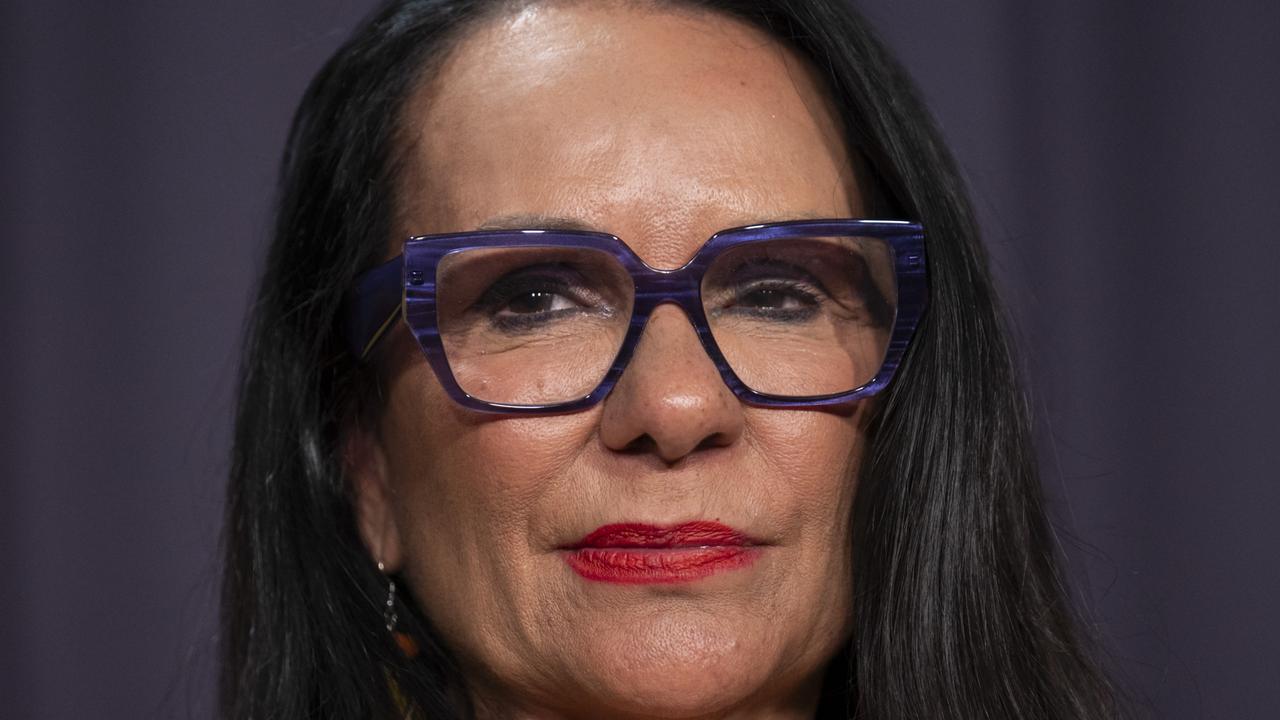Linda Burney says she’s ‘going forward’ after Voice defeat, remains committed to truth-telling
The Indigenous Australians Minister says she’s interested in “going forward” after last month’s emphatic Voice defeat, and is leaving the door open to local and regional voices.

Linda Burney has no regrets over Labor’s approach to the Voice to parliament referendum and says local and regional voices, and truth-telling, remain on the government’s agenda despite last month’s outcome.
In one of her first major media appearances since the resounding No vote on October 14, the Indigenous Australians Minister said the referendum had shown Australia that the “life opportunities for Aboriginal and Torres Strait Islander people in this country are unacceptable”.
Her comments came ahead of a Closing the Gap meeting with her state and territory counterparts and peak body representatives on Friday as they attempt to chart a path forward for Indigenous affairs.
“Closing the Gap is about making a practical difference on the ground, to things like overcrowding, to things like employment, to things like education, to things like justice, to things that are to do with life outcomes, particularly early childhood education, and of course, life expectancy,” she said at a media conference on Friday morning.
“It deals with health issues, it deals with justice issues, it deals with incarceration, and a whole range of other things that are important to the Indigenous community. But we are all determined to make a practical difference in terms of closing the gap.”
Earlier, she had used a comprehensive radio interview to say she was not a person who “spends a lot of time looking at the entrails of things”.
“I’m more interested in going forward … we’ve been on this merry-go-round before; 65,000 years is a pretty long time, and I don’t think that’s going to stop any time soon,” she told ABC Radio.

Just four of the 19 Closing the Gap targets are on track, and in their push for a Voice to Parliament, the government had said the model would make a practical difference to improve those outcomes.
Ahead of the meeting on Friday, Ms Burney said the group would discuss what comes next, with specific discussions about housing, education, and employment all set to be on the agenda.
She said in terms of the government’s own policy moving forward, truth-telling, along with local and regional voices, remained on the agenda.
“Very much what I’m hearing moving around the country is ‘what does it mean for the rest of the Uluru statement?’” Ms Burney told ABC Radio.
“In particular, I’m hearing the importance of truth-telling. I am not saying I’ve got a model in my mind, but I am saying that what I’m hearing very clearly from Aboriginal communities is the importance of truth-telling.”

The Voice to parliament was the first step of the Uluru Statement from the Heart, which called for truth-telling and treaty, and the Voice proposal called for local and regional dialogues to feed into the national level.
She said something akin to local voices remained “a very live discussion”, pointing to state and territory-based models.
“There are structures across Australia and they have to be self-determined, it’s not up to government to say ‘this is the way you do things’,” she said.
“But our job is to make sure that we implement the things that were promised in the last election … what’s most crucial, in my view, is to make sure we come up with a considered way forward, not a grab bag.”
Asked about her own political future amid speculation of a cabinet reshuffle, Ms Burney said she remained “completely committed to my job”.
“There’s a lot of speculation post referendum, but if anyone thinks that the Aboriginal affairs portfolio is just about the referendum, they are very, very wrong,” she said.



